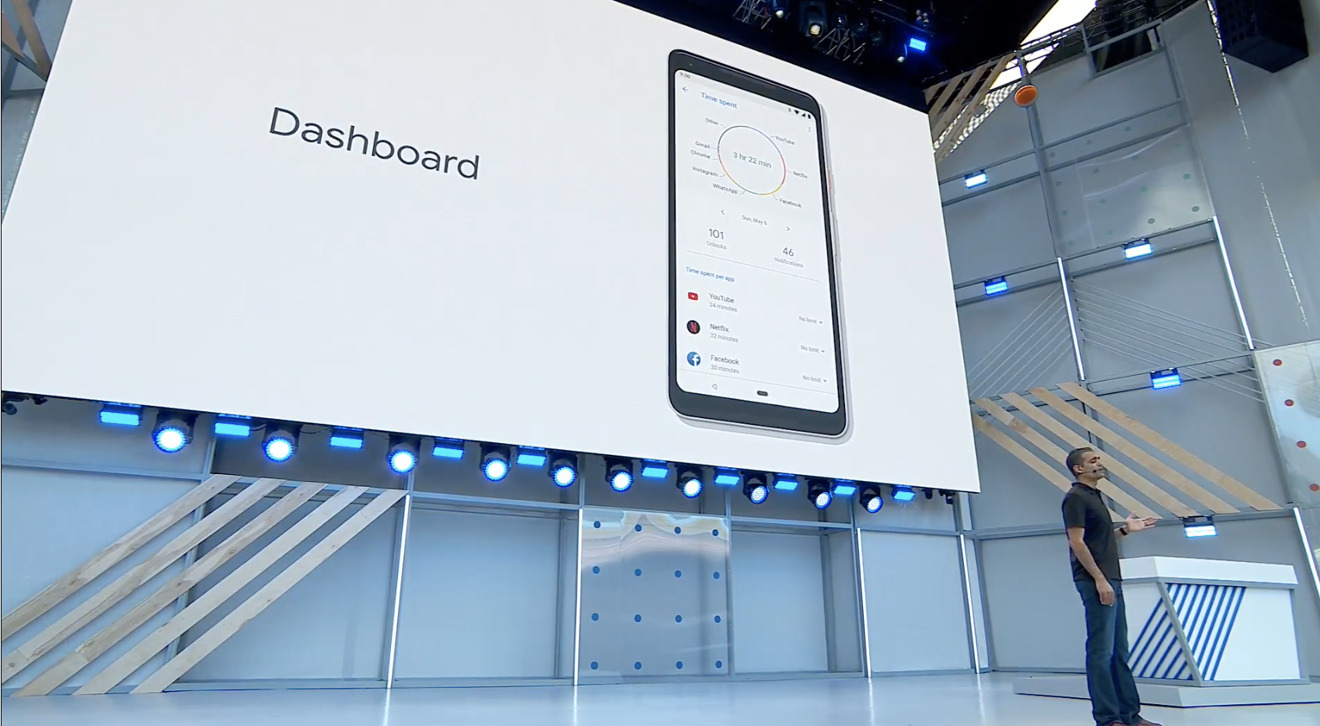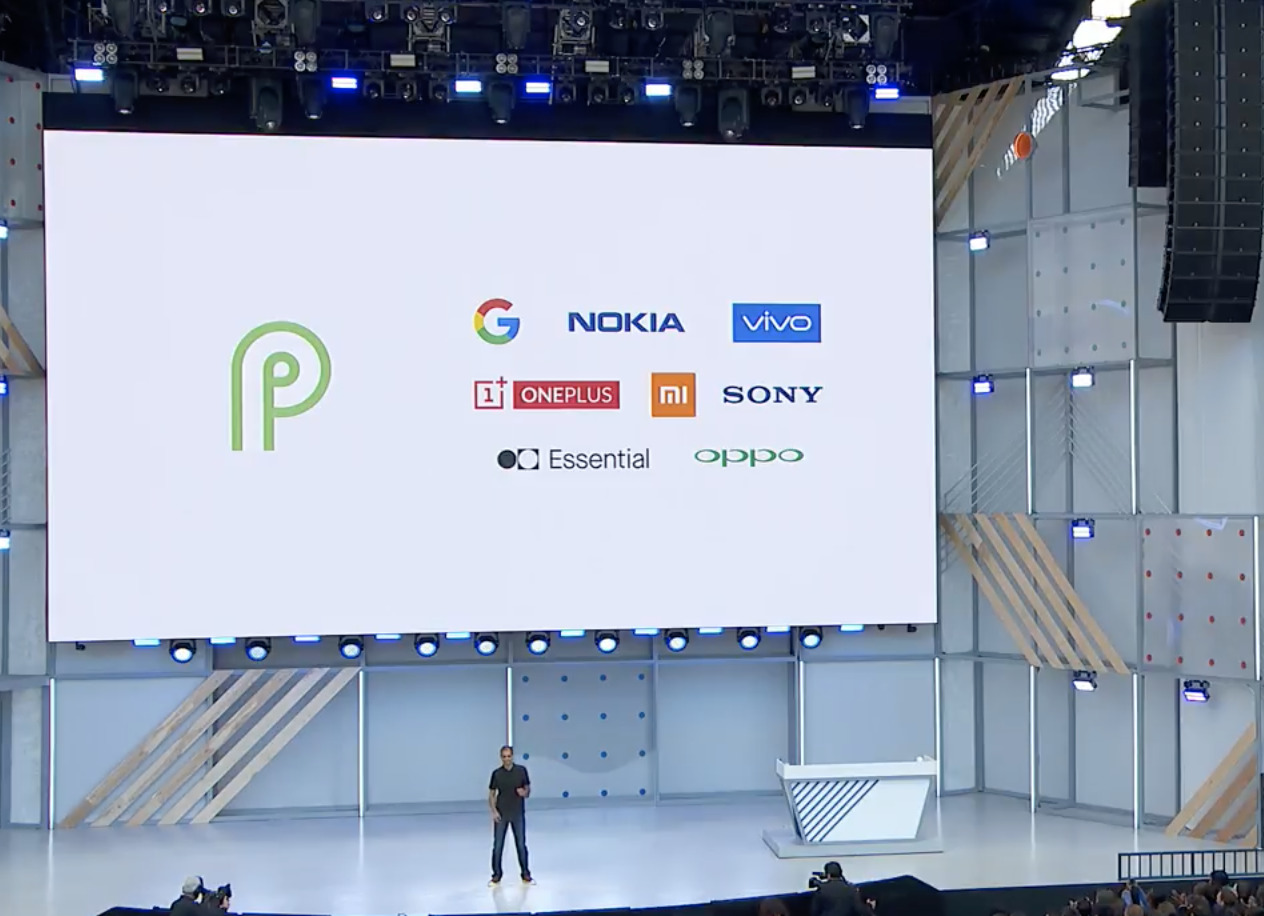Google announces Android P, with strong emphasis on 'free and open'
As expected, at the 2018 Google I/O developer's conference, the company has announced a new version of Android, with a beta program starting on Tuesday for a small sliver of devices.
Google Vice President of Android Engineering Dave Burke gave the presentation on the new operating system, calling it an "important first step towards the vision of AI at the core of the operating system" on smartphones. Google has three core tenets of the operating system: Intelligence, Simplicity, and Digital Well-Being.
Intelligence
Google highlighted its partnership with DeepMind on a new adaptive battery technology designed to give a more consistent battery experience. The routines predict which apps to use in the next few hours, and which later, saving cycles and battery power.
Initial testing is reportedly showing a 30 percent reduction in CPU wake-ups for apps in general. The reduction, combined with other process improvements in big/little processor scheduling is showing battery life increases for "many" users, according to Burke.
Android P will also adapt to usage patterns. One feature discussed is a new adaptive brightness, taking in to account not just the ambient light, but the user's preferences in those lighting conditions.
Burke noted that the machine learning was all being performed on the user's device, keeping the user information private.
Simplicity
Google has also implemented new multi-tasking gestures, and altering navigation through the phone. For instance, volume control has been simplified and adjusts the media volume by default, with a simpler toggle for the phone ringer.
Device rotation has been changed as well, with the user now being able to tap a button that pops up contextually after a physical rotation of the device.
Other changes have been made, but Google did not elaborate on them during the keynote.
Digital Well-being
Google claims that 70 percent of its users have asked for help with device management. To accomplish that goal, Android P has implemented a Dashboard, to tell users how much time they spend in each app, with an attempt to identify "meaningful engagement."
The Dashboard allows users to set time limits on apps, and will grey out apps that have exceeded the allowable time that the user has set.
Notifications have been altered as well, to help users find the "right balance with technology." Improvements have been made to silence not only texts and calls, but a silencing of notifications as well.
The mode is enabled by turning a phone face-down on a surface. "Shush" mode has a white-list, so important contacts can break through even if the phone has been silenced.
A Wind-Down mode has been implemented, shifting a phone into greyscale, making it "less engaging" according to the presentation. On wake-up in the morning, the colors return to normal.
Digital Well-Being will be a big focus, alongside "hundreds" of other improvements to the platform.
The Android P Beta is now available on Pixel devices, and seven other manufacturer's flagships. Manufacturers with flagship devices that can get the beta are Nokia, Vivo, HT, Xiaomi, Sony, Essential, and Oppo — with Samsung nowhere to be found.
Google faces an uphill battle for adoption, as it does every year. As of April, Google Oreo, teased at the 2017 Google I/O at this time in 2017, had about 4.6 percent adoption.
 Mike Wuerthele
Mike Wuerthele













 Malcolm Owen
Malcolm Owen
 William Gallagher and Mike Wuerthele
William Gallagher and Mike Wuerthele
 Christine McKee
Christine McKee
 William Gallagher
William Gallagher

 Marko Zivkovic
Marko Zivkovic









